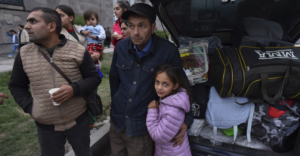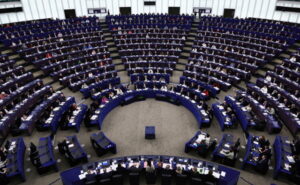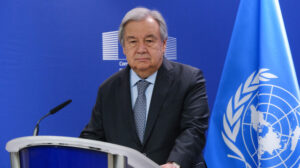An entire community may be on the verge of abandoning its ancestral homeland. After months of blockade by Azerbaijan, thousands of ethnic Armenians motored out of their highland enclave in Nagorno-Karabakh toward sanctuary in Armenia. They were leaving behind towns and villages that have sat for years within Azerbaijan’s internationally recognized territory, but which had maintained de facto autonomy in the form of the unrecognized republic of Artsakh, a medieval Armenian name for the contested region.
But what existed for centuries may be about to vanish in days. Last week, a lightning-fast Azerbaijani campaign overwhelmed armed separatists in Nagorno-Karabakh and compelled Artsakh’s authorities to agree to disband their territorial defense forces and enter into negotiations about terms of a de facto surrender. The advances marked the biggest escalation in the conflict since a brief war in 2020 saw the superior Azerbaijani military take back major swaths of land, which had been seized by Armenian forces in earlier rounds of fighting in the 1990s. Now, the autocratic government in Baku may for the first time since the collapse of the Soviet Union be able to extend full control over the majority-Armenian enclave.
That shifting reality sparked an exodus. The victorious Azerbaijanis agreed to open up the lone corridor connecting Nagorno-Karabakh to Armenia, precipitating a huge flow of refugees fleeing the enclave and a potential future of Azerbaijani rule. Baku insists the region’s some 120,000 ethnic Armenians are welcome to remain as citizens of a reintegrated, pluralist Azerbaijani state. But Karabakh’s residents had endured nine months of blockade that saw grocery stores emptied of food and hospitals bereft of vital medical supplies. This immediate experience of enforced deprivation simply added to the depth of enmities between both sides and a long history of atrocities and violence.
James Webb analyzes atmosphere of first TRAPPIST planet
“Our people do not want to live as part of Azerbaijan. Ninety-nine point nine percent prefer to leave our historic lands,” David Babayan, an adviser to Samvel Shahramanyan, the president of the self-styled Republic of Artsakh, told Reuters. “The fate of our poor people will go down in history as a disgrace and a shame for the Armenian people and for the whole civilized world.”
Continue here: Washington Post
Ask me anything
Explore related questions





